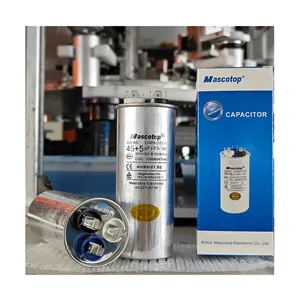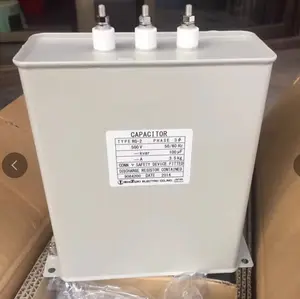
Anhui Mascotop Film Capacitors CBB65 Running Capacitor From Manufacturer OEM/ODM For Air Conditioner Factory





















Japan capacitors are integral components in the realm of electronic circuits, known for their reliability and performance. These capacitors, originating from a country with a rich history in electronics innovation, are utilized in a multitude of applications, from consumer electronics to industrial machinery. The term 'Japan capacitors' encompasses a variety of capacitor types, including japanese electrolytic capacitors, ceramic capacitors, and others, each with unique characteristics suited to specific functions.
The diversity of Japan capacitors is evident in their range of types. For instance, japanese electrolytic capacitors are often favored for their high capacitance values, making them ideal for power supply filters and energy storage applications. Ceramic capacitors from Japan, on the other hand, are commonly used in high-frequency applications due to their low inductance. These capacitors are not just limited to consumer electronics but are also integral in automotive, telecommunications, and aerospace technologies.
The construction of Japan capacitors involves meticulous material selection to ensure optimal performance. Japanese electrolytic capacitors typically comprise an electrolyte that can be either liquid or solid, with aluminum as a common material for the electrodes. Ceramic capacitors from Japan utilize ceramic materials as the dielectric. The choice of materials directly impacts the capacitor's stability, tolerance, and temperature performance, which are critical factors in their widespread adoption.
Capacitance, the ability to store and release electrical energy, is a defining feature of Japan capacitors. This characteristic is measured in microfarads (μF) and is a key specification for engineers and designers when selecting capacitors for their projects. The voltage rating of a capacitor, also a crucial specification, determines the maximum voltage the capacitor can handle. Japanese capacitors are designed to operate efficiently across a range of voltages and configurations, including series and parallel arrangements, to meet the demands of various electrical systems.
The advantages of incorporating Japan capacitors into electronic designs are numerous. They are renowned for their quality and endurance, which translates into longer life spans and reduced maintenance for the devices they power. Furthermore, the precision with which Japanese capacitors are manufactured results in components with consistent performance and minimal variance, a trait highly valued in sensitive electronic applications.
Selecting the appropriate Japan capacitor for a specific application requires careful consideration of its capacitance, voltage rating, and the environmental conditions it will operate in. While Alibaba.com does not manufacture or endorse specific products, the platform provides a vast selection of capacitors from various suppliers, enabling buyers to compare and source the right components for their needs.